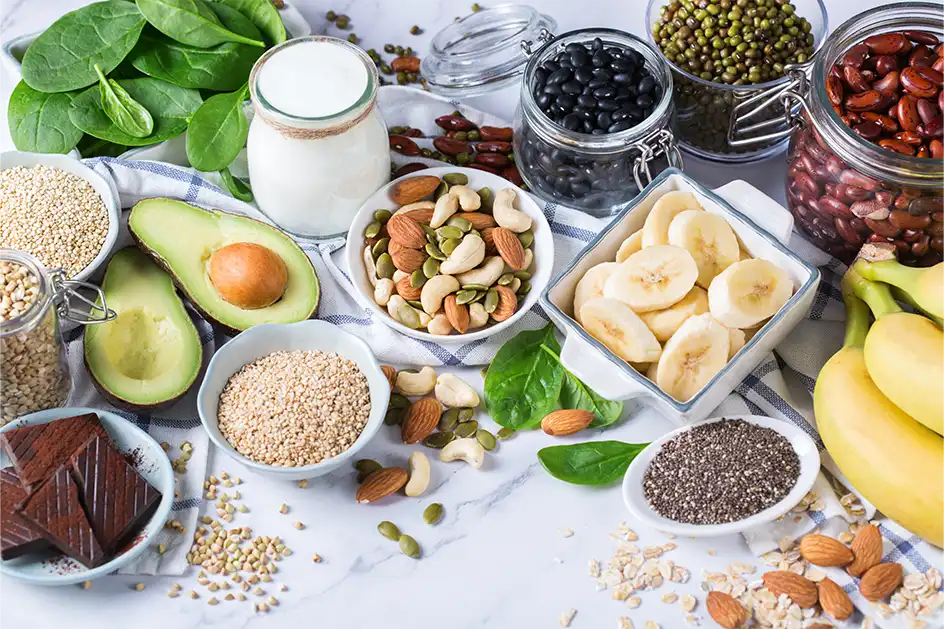Asthma is a chronic respiratory condition that affects millions of people worldwide, causing symptoms such as wheezing, shortness of breath, and coughing. While asthma is a lifelong condition, adopting a healthy lifestyle with a nutrient-rich diet and suitable exercises can significantly help manage asthma symptoms and reduce the frequency of attacks. In this article, we’ll explore how making lifestyle changes can improve asthma management and enhance overall well-being.
Understanding Asthma
Asthma is a condition in which the airways become inflamed, narrow, and produce extra mucus, making breathing difficult. Triggers can vary from allergens and pollutants to stress, physical activity, or even certain foods. While medication is often necessary for managing asthma, lifestyle modifications can play a crucial role in supporting respiratory health.
A healthy lifestyle, particularly a diet rich in anti-inflammatory nutrients and exercises tailored for people with asthma, can help keep the airways clear, strengthen the respiratory system, and enhance overall lung function.
How a Nutrient-Rich Diet Helps in Managing Asthma

Eating the right foods can have a profound effect on reducing inflammation in the body, improving immune function, and supporting lung health. Here’s how a balanced diet can help in managing asthma:
1. Anti-Inflammatory Foods
Inflammation plays a significant role in asthma. Consuming anti-inflammatory foods can help reduce inflammation in the airways, making it easier to breathe.
Key Anti-Inflammatory Foods to Include:
- Fatty Fish: Salmon, mackerel, and sardines are rich in omega-3 fatty acids, which have been shown to decrease airway inflammation.
- Leafy Greens: Vegetables like spinach, kale, and Swiss chard are loaded with antioxidants that combat inflammation.
- Berries: Blueberries, strawberries, and raspberries are high in vitamins C and E, which can help protect the lungs from oxidative stress.
- Nuts and Seeds: Almonds, walnuts, and flaxseeds provide healthy fats and antioxidants that reduce inflammation.
2. Foods Rich in Antioxidants
Antioxidants help protect the lungs from free radicals, which can worsen asthma symptoms. Incorporating antioxidant-rich foods into your diet can boost immune health and support lung function.
Best Antioxidant-Rich Foods:
- Citrus Fruits: Oranges, lemons, and grapefruits are high in vitamin C, known for its lung-protective properties.
- Tomatoes: Contain lycopene, an antioxidant that can improve lung capacity and reduce wheezing.
- Bell Peppers: High in vitamin C and beta-carotene, which support the immune system.
- Green Tea: Rich in polyphenols, green tea has anti-inflammatory properties that can soothe the airways.
3. Magnesium-Rich Foods
Magnesium is a mineral that plays a role in relaxing the bronchial muscles, potentially helping to prevent asthma attacks. A magnesium-rich diet can support better breathing and lung health.
Foods High in Magnesium:
- Avocado: A source of healthy fats and magnesium, which relaxes the airways.
- Bananas: Known for their potassium and magnesium content, both beneficial for respiratory health.
- Pumpkin Seeds: A nutritious snack loaded with magnesium and other essential minerals.
- Dark Chocolate: In moderation, dark chocolate can provide magnesium and act as an antioxidant.
4. Avoiding Trigger Foods
While certain foods are beneficial for asthma, others can act as triggers. It’s essential to avoid foods that may cause inflammation or allergic reactions.
Foods to Avoid if You Have Asthma:
- Dairy Products: Some individuals are sensitive to dairy, which can increase mucus production and trigger symptoms.
- Processed Foods: Foods high in preservatives, additives, or artificial colors can worsen asthma symptoms.
- Sulfite-Containing Foods: Foods like dried fruits, wine, and processed potatoes may contain sulfites, which can trigger asthma in some people.
- High-Sodium Foods: Excessive salt can lead to water retention, making it harder to breathe for people with asthma.
The Role of Exercise in Managing Asthma

Exercise might seem challenging for people with asthma, especially if physical exertion triggers symptoms. However, regular, moderate exercise can improve lung function, strengthen respiratory muscles, and increase overall stamina. Here are some exercises that are safe and effective for individuals managing asthma:
1. Low-Intensity Aerobic Exercise
Aerobic exercises are excellent for heart and lung health. Low-impact options help maintain cardiovascular fitness without putting too much strain on the airways.
Best Low-Intensity Aerobic Exercises:
- Walking: A gentle, low-impact activity that can be done indoors or outdoors. A brisk 30-minute walk most days of the week can significantly improve fitness levels.
- Swimming: One of the best exercises for asthma, swimming in a warm, humid environment can improve lung capacity and build endurance. It is gentle on the joints and less likely to trigger symptoms.
- Cycling: Riding a bike at a comfortable pace, whether stationary or outdoors, is an excellent way to increase cardiovascular fitness without overwhelming the lungs.
2. Strength Training and Yoga
Strength training can improve overall muscle tone and endurance, while yoga is known for its deep breathing techniques, which can enhance lung function.
Effective Exercises for Strength and Flexibility:
- Bodyweight Exercises: Gentle exercises like squats, lunges, and modified push-ups are great for building strength without stressing the lungs.
- Yoga: Poses that focus on deep breathing, like the “Cat-Cow” stretch, “Child’s Pose,” and “Mountain Pose,” can open up the chest and support better breathing. Breathing exercises like Pranayama can also be beneficial for people with asthma.
- Pilates: Incorporates breathing control and core strengthening exercises that can improve posture and lung function.
3. Breathing Exercises for Better Lung Health
Breathing exercises help expand the lungs, strengthen respiratory muscles, and increase oxygen intake, making it easier to manage asthma symptoms.
Recommended Breathing Techniques:
- Pursed-Lip Breathing: Inhale through the nose for two counts and exhale through pursed lips for four counts. This helps slow down breathing and maintain open airways.
- Diaphragmatic Breathing: Focuses on deep breathing from the diaphragm, increasing lung capacity and reducing the frequency of shallow breaths.
Sample Healthy Meal Plan for Managing Asthma

Here’s a daily meal plan that incorporates nutrient-rich foods to support lung health and reduce inflammation:
Day 1 – Monday
- Breakfast: Overnight oats with chia seeds, blueberries, and a drizzle of honey.
- Lunch: Grilled chicken salad with spinach, bell peppers, cherry tomatoes, and a lemon-olive oil dressing.
- Snack: A small handful of walnuts and an apple.
- Dinner: Baked salmon with roasted Brussels sprouts and quinoa, seasoned with turmeric and black pepper.
Day 2 – Tuesday
- Breakfast: Smoothie with banana, spinach, avocado, a scoop of protein powder, and almond milk.
- Lunch: Lentil soup with carrots, celery, garlic, and a side of whole-grain toast.
- Snack: Greek yogurt with a handful of raspberries and a sprinkle of pumpkin seeds.
- Dinner: Stir-fried tofu with mixed vegetables (like broccoli, bell peppers, and mushrooms) over brown rice.
Day 3 – Wednesday
- Breakfast: Whole grain toast with mashed avocado, a poached egg, and a sprinkle of chia seeds.
- Lunch: Quinoa salad with chickpeas, diced cucumber, cherry tomatoes, red onion, fresh parsley, and a lemon-tahini dressing.
- Snack: A handful of mixed nuts (walnuts, almonds, and pistachios) with a pear.
- Dinner: Grilled turkey breast with a side of steamed green beans, sweet potato mash, and a small serving of mixed greens.
Day 4 – Thursday
- Breakfast: Smoothie bowl with blended spinach, frozen banana, mango, a scoop of protein powder, and topped with granola and fresh blueberries.
- Lunch: Mediterranean-inspired wrap with grilled chicken, hummus, shredded carrots, spinach, and diced bell peppers in a whole grain tortilla.
- Snack: Sliced cucumber with a side of homemade tzatziki (Greek yogurt, dill, garlic, and lemon juice).
- Dinner: Baked cod with a side of roasted vegetables (like carrots, zucchini, and red peppers) and a portion of wild rice.
Day 5 – Friday
- Breakfast: Porridge made with steel-cut oats, a dash of cinnamon, sliced apple, and a tablespoon of ground flaxseed.
- Lunch: Minestrone soup loaded with veggies (like tomatoes, zucchini, and green beans), white beans, and a sprinkle of Parmesan cheese.
- Snack: Fresh orange slices with a small handful of pumpkin seeds.
- Dinner: Tofu stir-fry with mixed vegetables (snap peas, bell peppers, mushrooms) served over a bed of brown rice, seasoned with ginger and garlic.
Day 6 – Saturday
- Breakfast: Greek yogurt topped with fresh strawberries, sliced kiwi, and a drizzle of honey.
- Lunch: Roasted vegetable and chickpea salad with arugula, cherry tomatoes, roasted red peppers, and a balsamic vinaigrette.
- Snack: Sliced apple with a tablespoon of almond butter.
- Dinner: Whole wheat pasta with a homemade tomato sauce (diced tomatoes, garlic, onions, and basil) and a side of steamed spinach.
Day 7 – Sunday
- Breakfast: Scrambled eggs with diced tomatoes, onions, and fresh herbs (like parsley or cilantro), served with a side of whole grain toast.
- Lunch: Grilled shrimp and avocado salad with mixed greens, cherry tomatoes, cucumber, red onion, and a light citrus vinaigrette.
- Snack: A banana with a handful of sunflower seeds.
- Dinner: Stuffed bell peppers with lean ground turkey, black beans, brown rice, diced tomatoes, and spices, baked until tender.
Managing asthma with a healthy lifestyle is about choosing the right foods and exercises that support lung health and reduce inflammation. A diet rich in anti-inflammatory nutrients and antioxidants can keep asthma symptoms in check, while regular exercise, even in moderate amounts, can improve lung capacity and respiratory strength. Consistency is key, and by making small changes to your diet and incorporating suitable exercises, you can effectively manage asthma and enjoy a better quality of life.
Remember, it’s essential to work with your healthcare provider to determine the best diet and exercise plan for your specific needs. Asthma is a unique condition for everyone, and what works for one person may not work for another.




